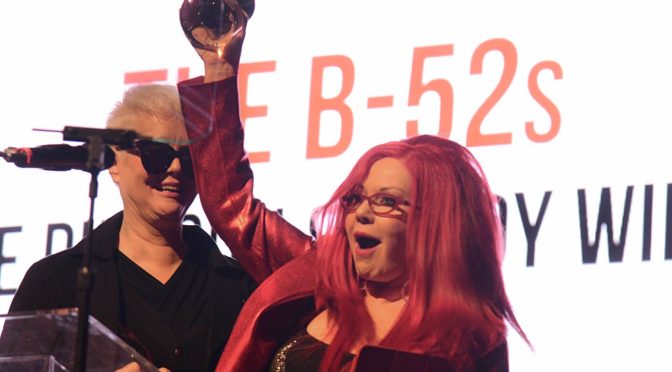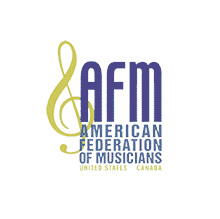Women in Media (WIM) provides networking opportunities, professional development, and advocacy for women in above- and below-the-line positions on film productions. Few studies look at female representation in below-the-line positions, but across the top-grossing 100 films of 2017, women comprised 14% of editors, 2% of cinematographers, and 3% of composers, according to a report from San Diego State University professor Martha Lauzen. On April 27 WIM will hold a panel for union members and nonmembers on “navigating the unions.” Representatives from IATSE, the Motion Picture Editor’s Guild, Directors Guild of America, and other unions will be present.
Tag Archives: news
Verizon Promises No Layoffs in Call Center Closure
Communications Workers of America estimates that the closure of six Verizon call centers nationwide will result in the elimination of 3,000 of its 6,500 current positions, but Verizon claims it’s not a layoff. A Verizon spokesperson has said the company is offering employees the same pay and benefits “to work from the comfort of their own home through the Home Based Agent model.” Plus, they will get a $65 per month for Internet access.
“If this is not a layoff, as Verizon claims, all workers at the … affected centers should get to keep their jobs,” says Dennis Trainor, union vice president and Wireless Workers United chair. Many of them will not meet Verizon’s home-work requirements. They must be able to work split shifts, weekends, and holidays; have high-speed Internet at home; and an extra room with total quiet.
According to the Verizon spokesperson, none of the workers in the affected Albuquerque, New Mexico; Franklin, Tennessee; Hilliard, Ohio; Huntsville, Alabama; Little Rock, Arkansas; Mankato, Minnesota; and North Charleston, South Carolina; facilities are represented by the union.
Betsy DeVos Accused of Union Busting
The American Federation of Government Employees (AFGE), representing US Department of Education employees, filed a complaint in March accusing Secretary of Education Betsy DeVos’s agency of union busting after it implemented a 40-page “collective bargaining agreement.”
The union says that the document is anything but what its name implies—it wasn’t bargained and there was no agreement. The document strips out most of the content of the parties previous collective bargaining agreement, removing virtually all union rights. The new rules require employees carry out union duties without pay and also forbids them to use Department of Education office space and equipment.

She Rocks Awards Recognize Music Industry Leaders
 Among the music industry leaders honored at this year’s She Rocks Awards held in January were three iconic union members: Melissa Etheridge of Local 47 (Los Angeles, CA) and Kate Pierson and Cindy Wilson of Local 802 (New York City). A Grammy and Academy award-winning musician, Etheridge has been tearing up the charts since 1988 when the lead single, “Bring Me Some Water,” from her very first album, was nominated for a Grammy. Pierson and Wilson, original members of The B-52s, known for hits like “Roam” and “Love Shack,” are celebrating that band’s 40th Anniversary.
Among the music industry leaders honored at this year’s She Rocks Awards held in January were three iconic union members: Melissa Etheridge of Local 47 (Los Angeles, CA) and Kate Pierson and Cindy Wilson of Local 802 (New York City). A Grammy and Academy award-winning musician, Etheridge has been tearing up the charts since 1988 when the lead single, “Bring Me Some Water,” from her very first album, was nominated for a Grammy. Pierson and Wilson, original members of The B-52s, known for hits like “Roam” and “Love Shack,” are celebrating that band’s 40th Anniversary.
Held during the January NAMM Show for the sixth consecutive year, the She Rocks Awards paid tribute to women who display leadership and stand out in the music industry. Previous recipients included Local 47 members Colbie Caillat, Sheila E., and The Bangles.

AFM Members Among USA Fellows
Two AFM members of Local 802 (New York City) are among this year’s United States Arts (USA) fellows. Jazz saxophonist-composer Wayne Shorter and composer, conductor, educator Tania León will each receive unrestricted $50,000 cash awards. This year, USA selected a total of 45 artists from all disciplines who live and work across the US through its rigorous nomination and panel selection process. Founded in 2006 by the Ford, Rockefeller, Rasmuson, and Prudential Foundations, USA is among the largest providers of unrestricted support to US artists. To date, it has provided more than $22 million in unrestricted $50,000 rewards to more than 500 artists in every stage of their careers.
Workers See Slow Gains for 2018
US workers continue to face uncertainty about health care and low $7.25 per hour federal minimum wage. However, 18 states gave minimum wage workers a raise for 2018 and several more have laws requiring sick leave and family leave.
At the start of 2018, minimum wage rates were increased by legislation or ballot initiative in Arizona ($10.50); California ($11); Colorado ($10.20); Hawaii, Rhode Island ($10.10); Maine ($10); Michigan ($9.25); New York ($10.40), Vermont ($10.50), and Washington ($11.50). In Alaska ($9.84), Florida ($8,25), Minnesota (9.65/$7.87), Missouri ($7.85), Montana ($8.30/$4), New Jersey ($8.60), Ohio ($8.30/$7.25), and South Dakota ($8.85) rates increased automatically based on the cost of living. Also, workers in Seattle ($15.45), and New York City ($13/$12) will start 2018 with a minimum wage increase. The cities of Portland, Oregon ($10.75), San Francisco, California ($15), and Washington, DC ($13.25) will see a raise July 1.
In 2018, larger businesses in New York City must pay $13 per hour, smaller businesses have to pay $12, and fast food workers will get $13.50. Minimum in other parts of the state are $11 (Westchester County) and $10.40. In New Jersey Governor Christie vetoed a $15 minimum wage bill passed by state legislature. Instead, minimum is going up 16 cents to $8.60. Several locations have legislation in effect that will gradually bring their minimum wage to $15 per hour: California (by 2022), Washington, DC (2020), and New York (2020+).
Laws requiring paid sick and family leave gained some ground. Connecticut (2011), California (2014), Massachusetts (2014), Oregon (2015), Arizona (2016), Vermont (2016), Washington (2018), and Rhode Island (effective 7/2018), plus Washington, DC have paid sick leave laws. Thirteen cities in New Jersey; Minneapolis and St. Paul, Minnesota; Chicago, Illinois; New York City; Philadelphia, Pennsylvania; Montgomery County, Maryland; and the states of California (2004), Washington (2007), New Jersey (2009), Rhode Island (2014), New York (2018), and Washington, DC (effective 2020) have paid family leave laws.
Only three states—California, New Jersey, and Rhode Island—currently offer paid family and medical leave. In Maryland, Republican Governor Larry Hogan vetoed the paid sick leave bill passed by state legislature. Meanwhile, large companies are asking congressional Republicans to shield them from state and local leave laws.
Singer Duke Fakir Calls for Passage of Classics Act
In a December 29 op-ed appearing in The Washington Post, singer Duke Fakir called on Congress for passage of the Classics Act to ensure digital radio cannot exploit artists by amending federal law to require the same digital royalties for all music, whenever it was recorded. Currently, payment for recordings made before 1972 are not covered under federal law but dictated by state law. This has allowed digital services such as SiriusXM to claim those laws allow them to use pre-72 music without paying royalties.
In the article, Fakir, founding member of the Four Tops, said, in part: “This digital rip-off has been a disaster for many older artists, diverting the fruits of their labors—funds that should be their lifeline—to the balance sheets of some of the wealthiest companies in the world … We’ve been stuck for a long time in the fight for fairness for music creators. And the Classics Act isn’t the end of the road. We need to finally ensure the payment of a fair performance royalty for terrestrial radio and close the loopholes that allow big companies to collect huge profits while paying next to nothing for music.”
Tip Pooling Leads to Worker Exploitation
Tip pooling is when employers require, or strongly suggest, that tipped workers put a portion of their tips into a common pool. In the past, such practices allowed employers to take control over employee tips and retain part of the money for themselves or distribute it to other employees. In 2011, under the Obama administration, the Department of Labor (DOL) passed a rule explicitly banning service industry managers from pooling and pocketing a percentage of their workers’ tips.
In December, the DOL announced its intention to reverse the rule in order to help “decrease the wage disparities between tipped and nontipped workers.” However, the rule change they propose has no requirement that employers distribute the pooled tips to bus boys and dishwashers. Employers would be free to pocket those tips as they have in the past.
“By allowing employers to take control of their employees’ tips, this regulation would push a majority-women workforce … further into financial instability, poverty, and vulnerability to harassment and assault,” says Saru Jayaraman of the union-backed Restaurant Opportunities Centers United. The Economic Policy Institute (EPI) says allowing tip sharing would be disastrous for workers, allowing employers to legally pocket $5.8 billion in tips (16% of the employee’s tipped earnings).
US CEOs Have Biggest Pay Gap Compared to Average Workers
Companies listed on the US exchange must disclose the ratio between a chief executive officer’s compensation and the pay of its median worker for any fiscal year starting on or after January 2017. A Bloomberg analysis of the data found that CEOs of the biggest publicly traded US company’s averaged $14.3 million in annual pay, 265 times more than average workers and the highest ratio of any country. The ratio is double that of Canada and 10 times greater than the country with the second biggest gap, India (229). Norway and Austria have some of the smallest margins. CEOs of companies in the Norwegian OBX Index got on average $1.28 million, roughly the income of 20 people.
Sinclair Broadcast Fined for Running Paid Content as News
The Federal Communication Commission (FCC) has fined Sinclair Broadcast $13.4 million for running paid content more than 1,700 times as “either stories resembling independently generated news coverage that aired during local news, or as longer-form stories aired as 30-minute television programs.” According to the FCC, the programming “included 60- to 90-second sponsored stories made to look like independently generated news coverage and 30-minute paid television programs.”
The FCC received an anonymous complaint that Sinclair had aired paid programming about the Huntsman Cancer Center, but did not tell viewers that Huntsman had paid for the stories to air. The cancer center was founded by Jon Huntsman Sr., who has long been active in Republican politics and whose son is the US ambassador to Russia.
Though it is the largest fine ever imposed for violating sponsorship identification rules, Democratic FCC Commissioners Mignon Clyburn and Jessica Rosenworcel dissented from the decision because they thought the fine should be higher. Clyburn said the fine amounted to a “slap on the wrist” for the company that grossed more than $2.7 million in revenue last year. She noted that Sinclair has been fined repeatedly over the years, including a $9.5 million settlement in 2016 for violating other regulations, including children’s television rules. She said the FCC was offering “unreasonable and suspicious favor to a company with a clear record of difficulty complying with the law.”

